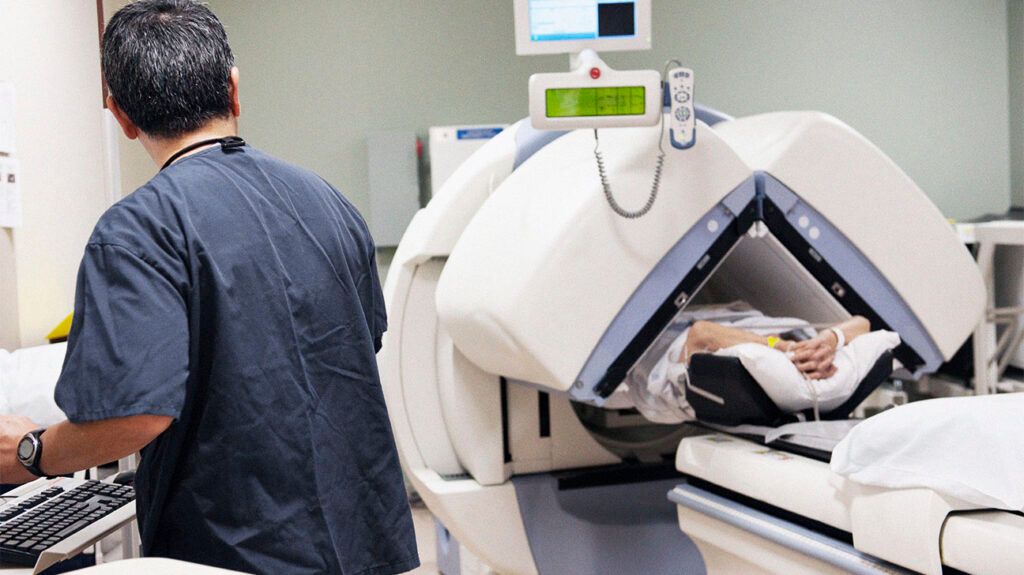Multiple sclerosis (MS) and ulcerative colitis (UC) are chronic conditions affecting different systems in the body, but they may share some links.
For example, people with UC may have a higher risk of developing MS than others. Additionally, both conditions are autoimmune disorders, and they may share some of the same risk factors.
This article discusses whether there is a link between MS and UC and how they are related. It also looks at risk factors, symptoms and treatment for both.

Yes, there may be a link between multiple sclerosis (MS) and ulcerative colitis (UC).
Although MS and UC affect different parts of the body, they are both autoimmune conditions. This means they happen because the immune system is mistakenly attacking healthy cells.
A
Scientists are still learning about the relationship between UC and MS. However, both conditions share genetic factors that may increase the likelihood of both conditions.
Specifically,
There is also some evidence that an imbalance of gut microbes, or dysbiosis, plays a role in both
Aside from a potential genetic link, UC and MS have distinct risk factors.
The National Multiple Sclerosis Society reports that MS is more common in people who:
- are between
20 and 40 years oldTrusted Source - are female
- live in
colder climatesTrusted Source - have low vitamin D levels
- had overweight or obesity in childhood
- have had exposure to certain viruses and bacteria, such as the Epstein-Barr virus
UC is more common in people who:
- are between
30 to 40 years oldTrusted Source - have a family history of UC
- have a personal history of gastroenteritis
- take certain medications, such as nonsteroidal anti-inflammatory drugs
Research also indicates that UC is more prevalent in people of Ashkenazi Jewish ancestry compared with people of other ethnic backgrounds.
Smoking has associations with both UC and MS. However, in UC, only past smoking has a link to the condition. Current smoking does not appear to correlate to UC, but researchers are still trying to understand why.
UC and MS have distinct symptoms due to their effects on different body systems, but both share symptoms of fatigue and inflammation.
UC symptoms include:
- chronic diarrhea
- abdominal pain
- a constant urge to pass stool
- weight loss and malnutrition
- anemia
Symptoms of MS include:
- numbness and tingling, typically in the limbs or face
- muscle weakness
- blurred vision or double vision
- coordination and balance difficulties
- trouble concentrating
To diagnose MS or UC, a doctor will start by asking about a person’s symptoms. They will ask about their medical history, and whether they have a family history of any autoimmune diseases, such as IBD.
Next, a doctor may perform a physical examination to look for symptoms, such as abdominal tenderness in UC, or tremors in MS.
To confirm a UC diagnosis, a doctor may recommend several tests, such as:
- tests for anemia, which can indicate bleeding in the colon
- stool samples, which can detect inflammation in the gut
- sigmoidoscopy or colonoscopy to see inside the colon
- medical imaging tests, such as a barium enema, CT scan, or MRI
If they suspect MS, doctors may recommend a full neurological exam. They may also order:
- an MRI scan to look for lesions on the brain
- a spinal fluid analysis
- an evoked potential test
No single test can confirm MS or UC with certainty, so doctors will use a combination of results and a person’s symptoms to make a diagnosis.
Treatment for both UC and MS involves managing symptoms, reducing inflammation, and preventing disease progression.
Although the specific treatments for each condition differ, there is some overlap. In treatment for either UC or MS, a doctor may prescribe:
- corticosteroids, which reduce inflammation
- immunomodulators, which regulate the immune system
- immunosuppressants, which reduce immune activity
Scientists are
Other treatments for UC
Other treatments specific to UC include aminosalicylates, which target inflammation in the lining of the colon. If necessary, a person may also need surgery.
Doctors sometimes use certain biologic drugs, such as TNF inhibitors, for UC. However, while TNF inhibitors are effective for UC, they may exacerbate MS symptoms.
A 2021 study found that people with IBD who took TNF inhibitors had a
Learn more about UC treatments.
Other treatments for MS
Other treatments specific to MS include:
- disease-modifying therapies
- muscle relaxants, which may relieve cramps and stiffness
- medications for other specific symptoms, such as pain
- physical therapy
- assistive equipment and devices to help with walking and other tasks
Learn more about treatment for MS.
While ulcerative colitis (UC) and multiple sclerosis (MS) affect different systems in the body, there may be a connection between the two.
People with UC are more likely to develop MS. Some genetic changes can increase the likelihood of either condition, and both may have connections to gut health.
People with both UC and MS will need personalized care to help make sure their treatments work to address both conditions effectively.

